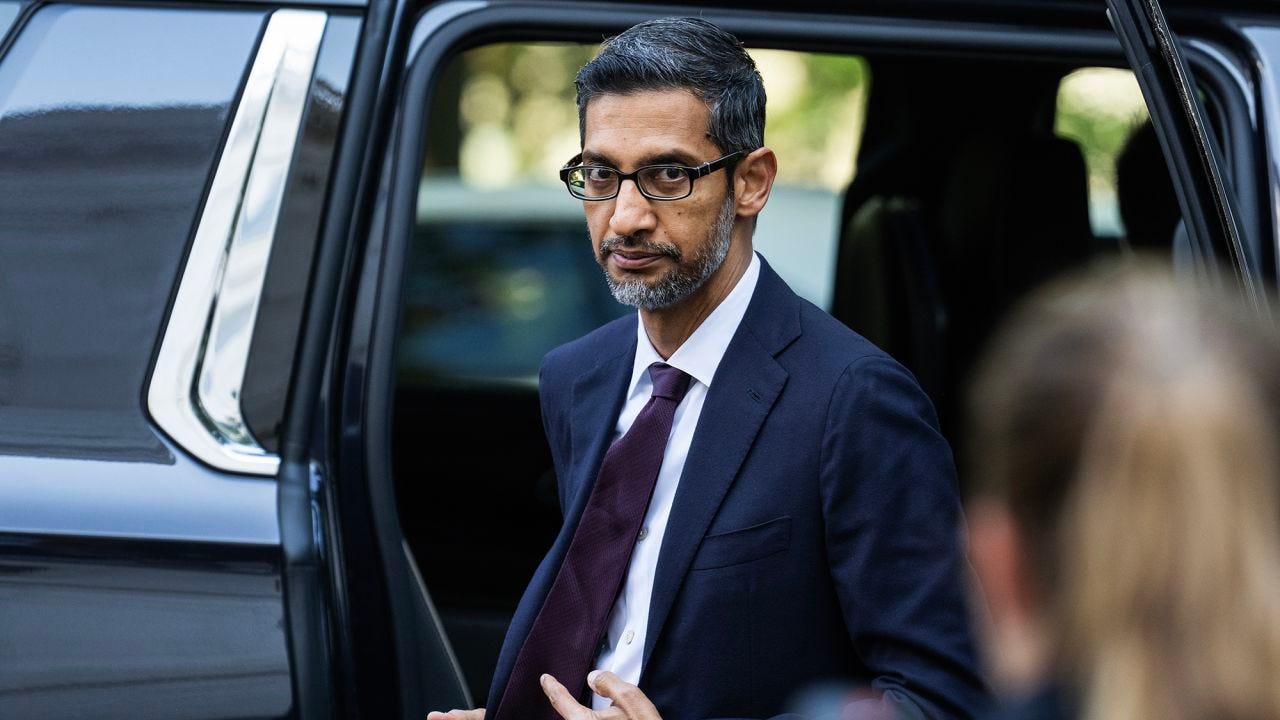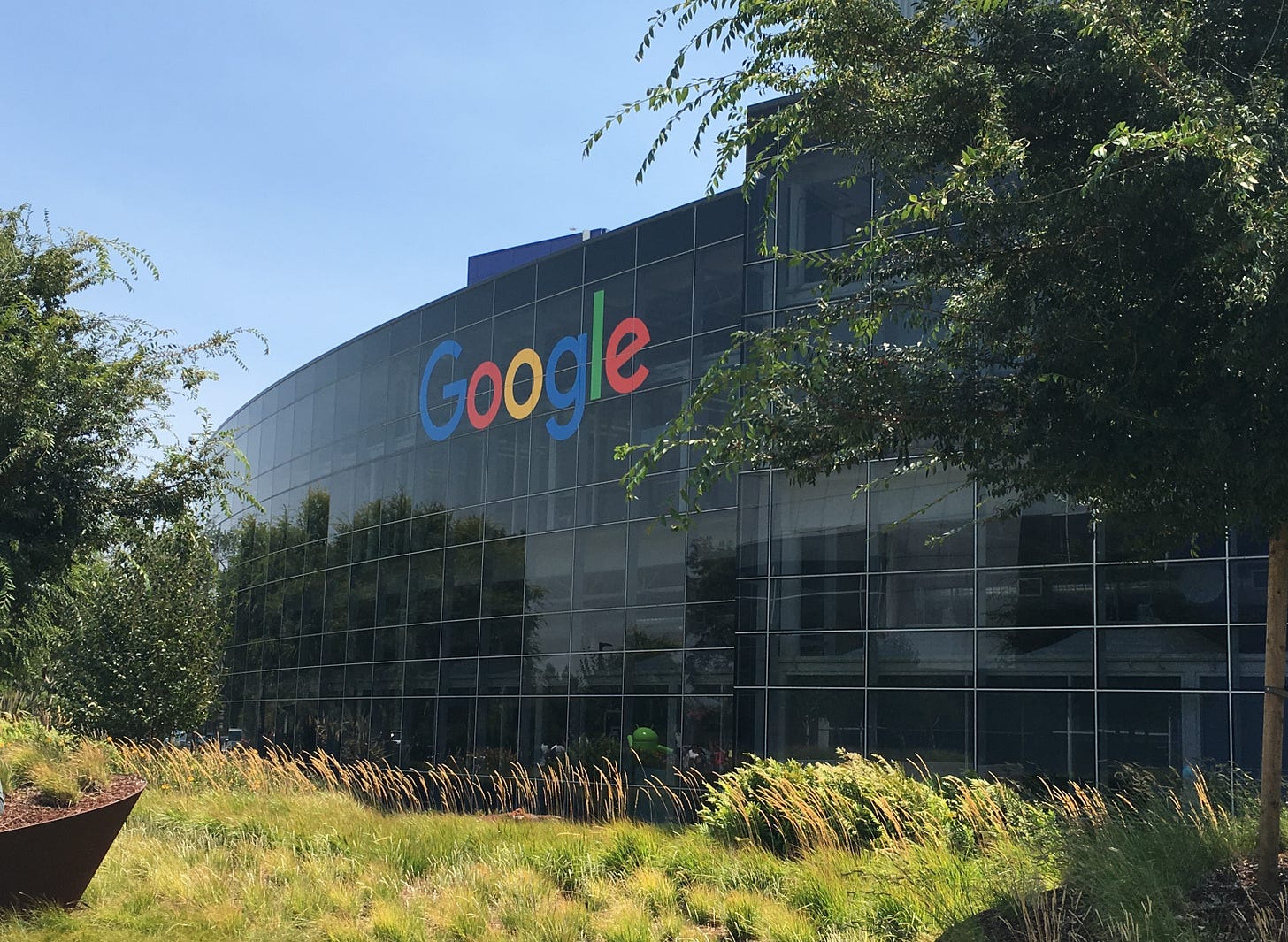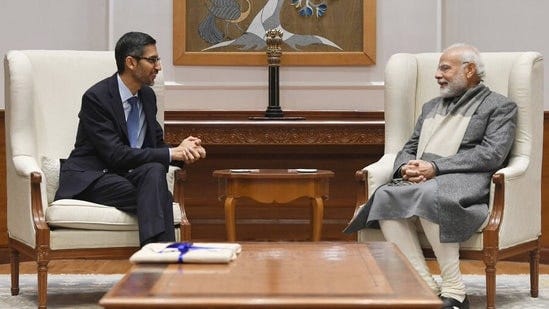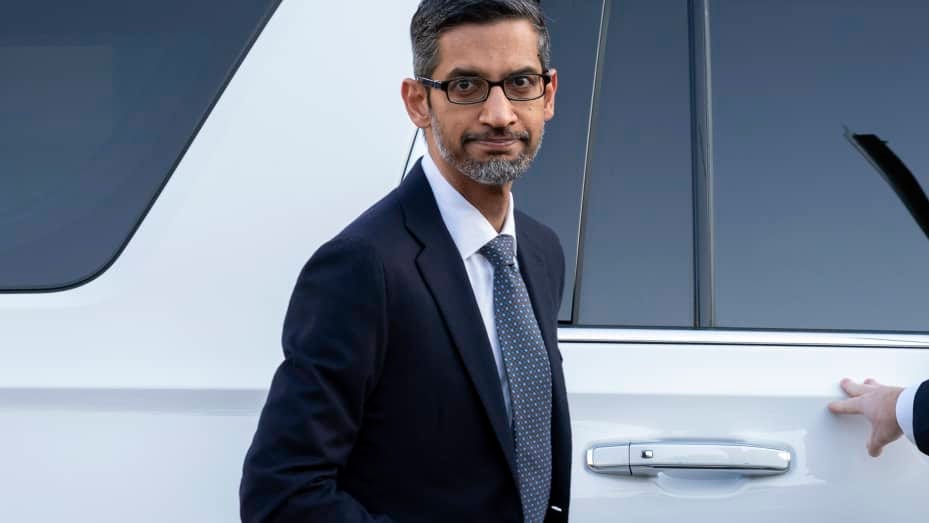Alphabet CEO Sundar Pichai Navigates Back-to-Back Google Monopoly Trials
"Uneasy lies the head that wear the crown." William Shakespeare

SAN FRANCISCO – Sundar Pichai, CEO of Alphabet Inc., was summoned to federal court in San Francisco on Tuesday, November 14 for a crucial testimony in an ongoing antitrust trial, marking his second court appearance in just two weeks. This appearance comes amid an escalating legal battle that puts a spotlight on Google's business practices, potentially threatening the foundations of an internet empire that Pichai has been instrumental in building.
Defending Google Play Store's Practices
Pichai spent over two hours defending the business model of the Google Play Store, which serves as the primary app distributor for Android-powered smartphones, dominating the global market. He faced a mix of confrontational questioning and the need to elaborate complex topics to the trial's jury. Despite occasional frustration, Pichai maintained a professorial demeanor, elucidating the intricacies of Google's operations.
Epic Games' Allegations
In the lawsuit initiated by Epic Games, the creators of Fortnite, the focus is on the payment processing system of Google Play. Epic contends that the system's commission fees, ranging from 15% to 30% on in-app purchases, harm consumers and software developers alike. They argue that Google uses its dominant market position to hinder competition, resulting in higher prices and less innovation.
During his testimony, Sundar Pichai provided insights into Google Play's financial performance, revealing an impressive operating profit of $4.4 billion in the first half of 2020. Pichai, however, tempered these figures by underscoring the significant investments made by Google in developing and maintaining the Android operating system, a key component of the company's broader ecosystem.
Google Play's Developer-Centric Model: Pichai's Perspective
Sundar Pichai, Alphabet Inc.'s CEO, emphasized Google Play's developer-friendly approach during his court testimony. He clarified that the store's profits don't reflect the extensive investments in Android, which provides an alternative to Apple's iPhone. Notably, Pichai revealed that 97% of Google Play developers incur no fees, as they either don't sell digital goods or don't meet the revenue threshold for commissions. Pichai summarized Google's philosophy succinctly: “The way we designed Google Play is we do well only when developers do well,” highlighting a mutually beneficial relationship between Google and its app developers.
Echoes of Apple's Trial
This case parallels a previous lawsuit by Epic against Apple, with Google and Apple portrayed alternately as adversaries and collaborators. Pichai's testimony also revisited his recent court appearance in Washington, D.C., where he addressed accusations of Google's search engine stifling competition1.
Google's Power and Apple Relationship
A focal point in both trials is Google's immense influence and its complex relationship with Apple. In San Francisco, Google's defense hinged on the competition it faces from Apple's iPhone and App Store. Concurrently, the Justice Department's case in Washington scrutinized Google's arrangements with Apple to prioritize its search engine on Apple devices.
Financial Revelations
The testimony revealed that Apple received a significant portion of the $26.3 billion that Google allocated for deals securing its search engine as the default on various devices2. Specifically, Apple's 36% share from Google’s search ad revenue in Safari was highlighted, contrasting with the 16% paid to Samsung.
Pichai's Stance on Competition
Throughout the intense cross-examination, Sundar Pichai steadfastly maintained that Google and its Android platform are in robust competition with Apple and its iPhone. He argued that this competition is advantageous for consumers, offering them a broader range of choices and more competitive pricing. Pichai highlighted the distinct approach of Android, setting it in stark contrast to Apple's business model. The courtroom dynamics reached a point of such high tension that U.S. District Judge James Donato, observing the vigorous exchange between Epic’s lawyer and Pichai, remarked on the session as a “rocking 75 minutes” before calling for a brief recess.
The Play Store's Financial Impact
Pichai was steered to discuss the Play Store's profitability, revealing a substantial operating profit in the first half of 2020. He countered this by noting the significant investments made in the Android operating system and that a majority of developers on Google Play do not incur any fees.
The Broader Implications
These tandem trials not only scrutinize Google's market dominance but also probe the nuanced dynamics of its relationship with Apple. The outcomes could have far-reaching consequences for Google's future business operations and the broader tech industry.
The Person Behind the Persona
Sundar Pichai, an alumnus of the prestigious Indian Institute of Technology, Kharagpur, has been integral to Google's evolution since joining the company in 2004. Initially a key senior executive under Google's Founders, Sergey Brin and Larry Page, Pichai's influence rapidly grew within the organization. His most notable early contribution was leading the development of Google Chrome, which significantly enhanced Google's presence in the web browser market and solidified his reputation as an innovative leader.
As CEO, Pichai has adeptly managed multifaceted challenges encompassing technology, management, and ethics, including addressing privacy concerns and responding to the rising competition from AI technologies like ChatGPT, backed by Microsoft. He has steered Google through congressional hearings and complex international relations issues, reflecting his strategic insight, particularly in relation to defense department projects and global matters such as the Israel-Hamas conflict and Russia-Ukraine war.
Pichai's leadership role at Google epitomizes the Shakespearean notion, "Uneasy lies the head that wears the crown," underscoring the vast responsibilities and challenges of directing one of the most influential tech corporations in the world. His decisions, from corporate strategies to positions on global affairs, are scrutinized globally, highlighting Google's significant impact on diverse aspects of society and international politics.
Sundar Pichai's Testifies as Google's Star Witness in U.S. Antitrust Case
The Power of Default: A Contested Terrain Sundar Pichai, the CEO of Google, on Monday, October 30, 2023 testified in a landmark U.S. antitrust case, underscor…
Google's $26 Billion Spend to Be Your Default Search Engine
The Battle for ‘Default’ Supremacy In the high-stakes arena of digital real estate, the most prized territory is that small, unassuming setting on your devices—the ‘default search engine’. This is a battleground where G…








